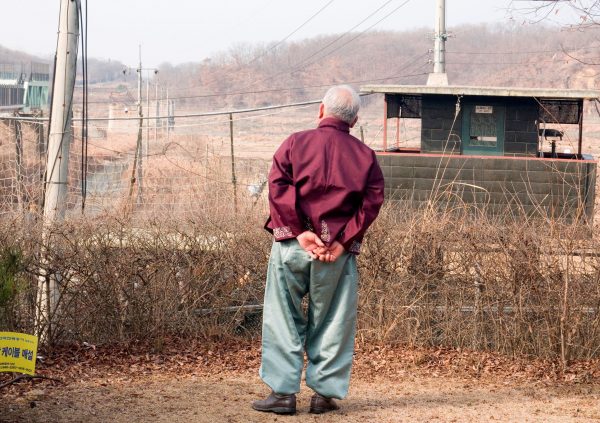Trump’s policy, built on wishful thinking, illusion and not a little hubris, was bound to fail. Pyongyang’s determination to become a nuclear-armed state has long been clear. Trump’s risky dialogue with Kim rested on the President’s insistence that he would achieve what had eluded his predecessors and his skill in convincing people he was succeeding. But at the heart of Trump’s approach was a fatal flaw — the United States and North Korea never agreed on the meaning of ‘denuclearisation’.
For Washington, denuclearisation means the end of Pyongyang’s nuclear weapons program. But Pyongyang’s concept of the ‘denuclearisation of the Korean Peninsula’ requires the United States to terminate the US–South Korea alliance, remove US troops from Korea, eliminate the US nuclear umbrella and end the threat of US tactical and strategic weapons. Kim’s goal was to defang and denuclearise the United States.
The gulf between the two countries’ definitions of ‘denuclearisation’ virtually guaranteed failure. This was reinforced by Kim’s exclusion of core elements in his nuclear program from any agreement at the June 2018 Trump–Kim summit in Hanoi — including secret uranium enrichment facilities. Kim’s intention to remain a nuclear power was clear, perhaps even to Trump.
Reluctant to admit defeat, Trump continues to promote the illusion of eventual denuclearisation, just as he once insisted that the North Korean nuclear threat had disappeared. But the reality is clear: Pyongyang has used the 18 months since Trump agreed to meet Kim to increase the number of its nuclear weapons and expand its ballistic missile capabilities. The North Korean nuclear threat has grown under Trump’s watch.
Meanwhile, two summits, a hastily arranged Trump–Kim meeting at Panmunjom, a difficult encounter between US and North Korean diplomats in Stockholm and now Kim’s ‘new path’ declaration kim jong-un have dispelled any remaining illusions about Pyongyang’s intentions. North Korea has left Trump in the same predicament as his presidential predecessors.
Kim will eventually deliver on his New Year’s Eve threats and the Korean Peninsula will be in crisis again. Before then, Trump must accept failure and act. But his policy options range from horrible to hard.
First, reverting to the ‘fire and fury’ of 2017 risks a horrific war resulting in massive casualties, the destruction of the Peninsula and North Korean attacks on Japan and even the United States. Alternatively, accepting a nuclear North Korea and relying on containment and deterrence to ‘manage’ the threat leaves in place a permanent threat to the United States and its allies.
Freezing North Korea’s nuclear program and seeking its eventual elimination would repeat an approach that failed under both former presidents Bill Clinton and George W Bush before Pyongyang acquired nuclear weapons. There is little reason to believe that it would work now that Kim could have as many as 60 nuclear weapons.
‘Massive pressure’, in contrast to Trump’s underwhelming ‘maximum pressure’, could threaten the one thing North Korea treasures more than its nuclear weapons — the survival of its regime. Using all available diplomatic, trade, economic, and covert tools and military pressure to convince Kim that he could face economic, and ultimately regime, collapse might compel him to make the right decision. It’s the one approach that has never been completely tried.
But the Trump administration’s aversion to traditional leadership, multilateralism and coalition building, its alienation of China, the erosion of US alliances, Washington’s loss of moral authority and its abandonment of long-standing principles suggest that it may not have the capacity to pursue such a course.
Trump and South Korean President Moon Jae-in both loathe to abandon their faith-based North Korea policies and may opt to muddle through and continue perpetuating the illusion of denuclearisation, at least for a while. And Donald Trump can be relied on to continue portraying failure as brilliant success.
Ironically, Kim may choose to play along for a while. The current impasse allows him to expand his arsenal while Washington and Seoul temporise. Kim’s ‘new path’ keeps Washington off balance as Pyongyang drives the diplomatic and security agenda and dominates the news cycle. It also keeps China, which wants no return to the ‘fire and fury’ days, on side.
Inertia and denial seem likely to substitute for effective policy until Pyongyang decides that it is time to take a provocative step down its ‘new path’. Washington and Seoul would do well to prepare for that day, which is surely coming. The time for bromance, ‘love letters’ and illusion is over.
Evans JR Revere is a non-resident Senior Fellow at the Center for East Asia Policy Studies, the Brookings Institution.

